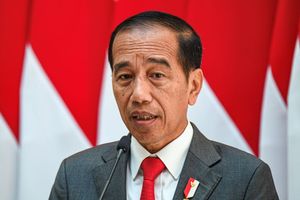Moody's Upgrades Indonesia's Sovereign Ratings To Ba1
SINGAPORE, KOMPAS.com - Moody's Investors Service has today concluded its rating review, which was initiated on December 1, 2010, and upgraded the Indonesian government's foreign and local-currency bond ratings to Ba1, from Ba2.
Rating rationale
The main reasons for the decision are:
(1) Indonesia's economic resilience is accompanied by sustained macroeconomic balance;
(2) The government's debt position and the central bank's foreign currency reserve adequacy are improving; and
(3) The prospects for foreign direct investment inflows are also improving, and this is expected to fortify Indonesia's external position and economic outlook.
In addition, the upgrade affects the country's ceiling for foreign currency (FC) bonds, which has consequently been moved up by a notch to Baa3, and the FC bank deposit ceiling, which has been moved up to Ba2. The outlook is stable.
Moreover, the local currency bond and deposit ceilings have been raised to Baa1 from Baa2. The country ceiling for short-term FC debt is “Not Prime“ and remains unaffected by this action.
These ceilings act as a cap on ratings that can be assigned to the foreign and local currency obligations of other entities domiciled in the country.
Rationale for the upgrade to Ba1
Moody's had placed Indonesia's Ba2 sovereign ratings on review for possible upgrade in December 2010.
This was due to the country's resilience to the global financial crisis, improving government and external credit-metrics, and an ability to manage domestic political challenges to the reform agenda without damaging key policy institutions' effectiveness.
“We have upgraded the sovereign credit ratings as the momentum in the economy is expected to be sustained by steady domestic demand, a reasonable pace and sequencing of policy and structural reforms, and rising foreign direct investment.
Furthermore, the country's debt position and reserve adequacy remain on an improving trajectory relative to most of its ratings peers,“ says Mr. Aninda Mitra, a Vice-President at Moody's and its lead sovereign analyst for Indonesia.
Rationale for stable outlook
“The stable outlook balances prospects for further improvements in sovereign credit metrics against uncertainties emanating from ongoing shifts in the banking supervisory framework. Moreover, economic policy management has thus far been effective, but is facing a growing challenge from the twin threats of inflation and speculative capital inflows,“ says Mr. Mitra.
“The stable outlook also reflects the gradual pace of the deepening in the country's capital markets and the recent proposal for the creation of a “bond-fund“ both of which, in the 12-18 month timeframe, could slowly begin to enhance the government's onshore debt finance-ability,“ he added.
Risks to the rating and economic outlook
Moody's considers key risks to the rating outlook to be mainly embedded in the country's political system. Opposition from coalition partners has slowed the government's drive to implement far-reaching economic reforms; however, this has not thus far impacted overall policy management capabilities or near-term economic prospects.
Nonetheless, if, against our expectations, adversarial or obstructionist politics were to impede policy making and administration or banking supervision, investor confidence could suffer and financial market pressure could rise.
Furthermore, the share of non-resident holdings of Rupiah-denominated Indonesian government debt has risen and a disorderly unwinding could be problematic amidst Indonesia's relatively shallow domestic capital market.
What could change the rating - up
Greater assurance of continued monetary and price stability and soundness of bank supervision, gradual deepening of local capital and credit markets to support the government's onshore debt finance-ability, and further inflows of foreign direct investment to support the external balance of payments.
What could change the rating - down
Sustained loss of inflation control and monetary stability or a large shock to the country's fiscal, debt and foreign currency reserve position --derived, for instance, from policy mismanagement or some other domestic political shock which results in a deep deterioration of resident and investor confidence.
Previous rating action and methodology
Moody's last rating action on Indonesia was on December 1, 2010 at which time the Ba2 sovereign rating was placed on review for upgrade. The principal methodology used in this rating was Moody's Sovereign Bond Methodology published in September 2008.
Regulatory disclosures
Information sources used to prepare the credit rating are the following: parties involved in the ratings, parties not involved in the ratings, and public information.
Moody's Investors Service considers the quality of information available on the issuer or obligation satisfactory for the purposes of maintaining a credit rating.
Moody's adopts all necessary measures so that the information it uses in assigning a credit rating is of sufficient quality and from sources Moody's considers to be reliable including, when appropriate, independent third-party sources.
However, Moody's is not an auditor and cannot in every instance independently verify or validate information received in the rating process.
Simak breaking news dan berita pilihan kami langsung di ponselmu. Pilih saluran andalanmu akses berita Kompas.com WhatsApp Channel : https://www.whatsapp.com/channel/0029VaFPbedBPzjZrk13HO3D. Pastikan kamu sudah install aplikasi WhatsApp ya.




































